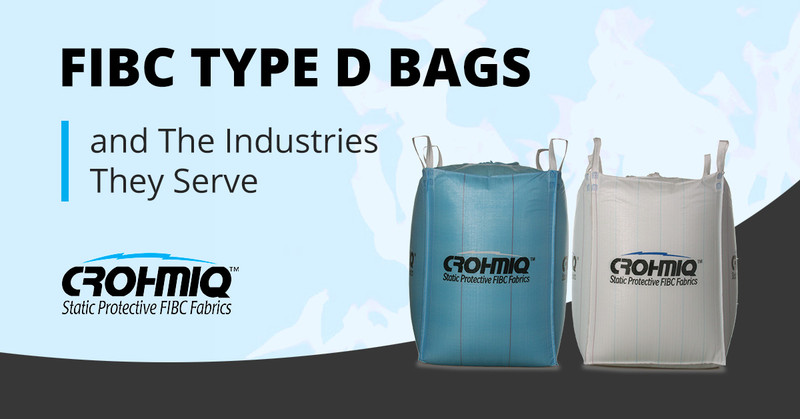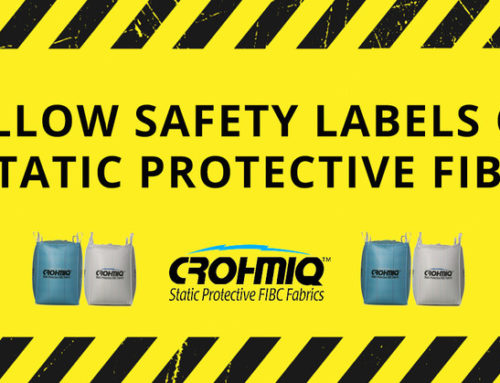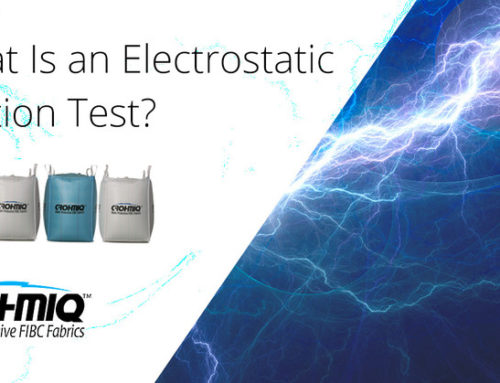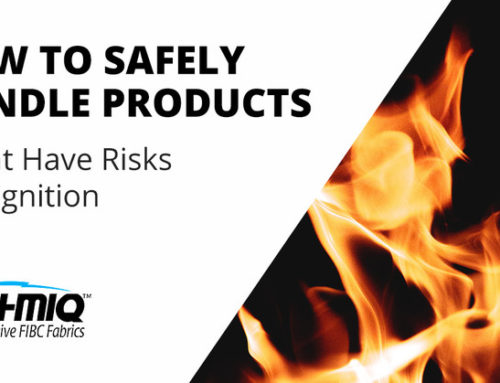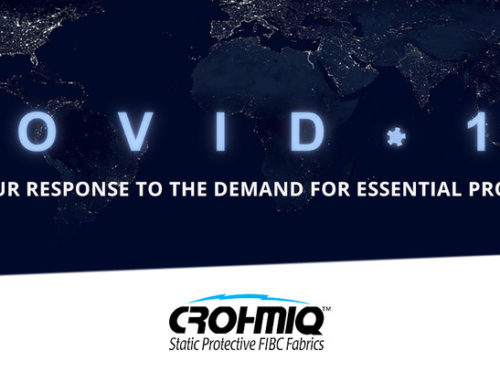Flexible Intermediate Bulk Containers (FIBC) are bags that are used in many different industries for shipping and storage. FIBC are easier to handle compared to pallet loads of smaller sacks, for example, and not every material is suitable for shipping in boxes, which is why these bags were made. They are flexible and stackable, which means they are adaptable for different needs. Since there are different types of materials and grades within them, here is more information on what FIBC bags are and who uses them.
What is an FIBC Type D Bag?
Bags are not new to the shipping industry, but FIBC bags were designed differently to solve some of the common problems with bags. Through the process of filling and emptying bags with powders and other fine substances, static electricity will build up. In small amounts, static electricity is not necessarily a dangerous thing, but when you have a lot of it building up when bags are filled, stacked, or rub together, they can cause a major hazard for handlers. Since many of the products inside FIBC bags are highly flammable or combustible, it is especially dangerous for the container to have any static electricity. It is just as dangerous for FIBC to generate static electricity when they are being emptied into flammable solvents.
FIBC bags come in different types labelled A, B, C, and D; each with its own features and recommended uses. Here is a run down on each of the different types of FIBC materials.
- Type A: Made of plain-woven polypropylene or other non-conductive fabrics. Recommended for non-flammable products. It does not protect against static electricity.
- Type B: Made of plain-woven polypropylene fabric or other non-conductive fabrics with low breakdown voltage. Recommended for transporting dry, flammable powders, but cannot be discharged into flammable solvents. It does not dissipate static electricity.
- Type C: Made of polypropylene fabrics with conducting threads. Recommended for transporting flammable powders. It only protects against static electricity when grounded during filling and discharging.
CROHMIQ® Type D bulk bags are the safest, most advanced FIBC bag on the market. The fabric is specifically designed to prevent static electricity and sparks. It does not require a ground/earth connection like the Type C bags because of the design of fabric with quasi-conductive yarns. These promote corona, which dissipates the static electricity into the atmosphere. Corona is a safe, low energy discharge, so it can be used even with combustible and flammable products.
Another benefit of Type D bulk bags is that they can be used in a combustible and flammable environment. Type A and B bulk bags cannot be in an area where there are flammable solvents or gases around. Type C bulk bags can only be used if they are properly grounded. They are made for very specific environments and products, but cannot be used for everything. Type D bulk bags can be used in these safely in combustible and flammable areas.
Industries Served
FIBC Type D bags can benefit almost every industry. While some of these materials are items most people come into contact every day, not all are so familiar. Four industries that commonly use FIBC Type D bags are the food, cosmetic, drug, manufacturing, chemical, and pigment industries.
Food industry: CROHMIQ is the leading manufacturer of FIBC Type D fabric and complies with the US Food, Drug, and Cosmetic Acts. CROHMIQ fabric provides the necessary barrier to keep food from any adulterating outside agents, keeping food safe. In addition, the extruded coating and base fabric fall in both the area of generally recognized as safe and within relevant specifications for safety. For use in Europe, it complies with the EU Material & Articles in Contact with Food Regulations. The materials used in CROHMIQ construction are permitted for contact with food.
Cosmetics: Again, the CROHMIQ fabric complies with the US Food, Drug, and Cosmetic Acts. Since large amounts of chemical powders are used in cosmetics, CROHMIQType D bags are often used in transportation.
Pharmaceuticals: The powders used in formulation of medications are easily transported with CROHMIQ FIBC Type D bags. The food and drug contact approved barrier protects the substances from contamination by outside agents while preventing electrostatic charges.
Manufacturing: Metal powder, shavings, borings, and cuttings are often transported for different capacities of manufacturing. Transporting them from one manufacturer to another can cause a fire and health hazard to those who encounter them, which is why CROHMIQ Type D bags are ideal. They not only dissipate static electricity, but they provide a functional barrier against potential health hazards.
Chemicals & Pigments: Powders and granulated chemicals, pigments and other additives are widely distributed in FIBC bulk bags. In many cases the products are combustible or flammable, or might be discharged from bags into flammable solvents. It is essential to prevent the build-up of static electricity, in such applications. CROHMIQ Type D bags provide full protection against electrostatic hazards, and without a ground connection, CROHMIQ Type D bags retain all the benefits and ease of handling associated with FIBC.
Safety First
The best way to avoid static electricity when transporting products that are combustible or will be discharged inflammable surroundings is with a bag made of CROHMIQ Type D FIBC fabric. It is the safest, most reliable way to transport powders and granular products. With no grounding required and reusable when thoroughly cleaned, it is the easiest solution for companies too.

